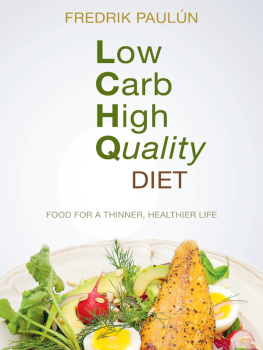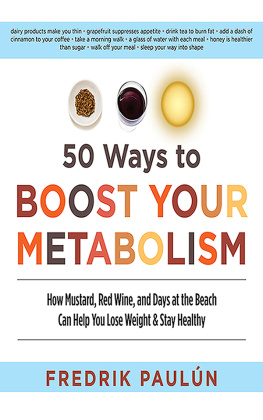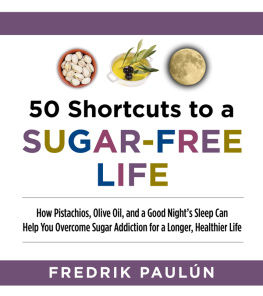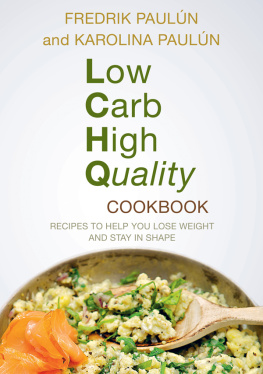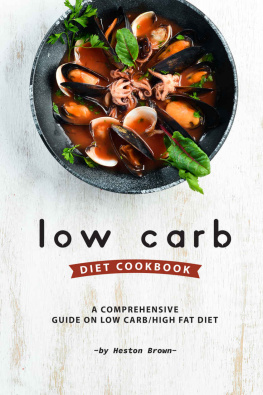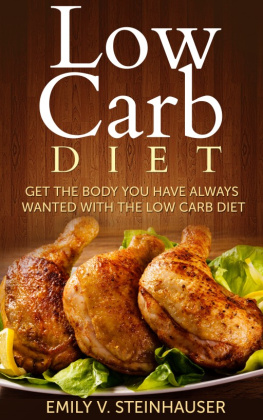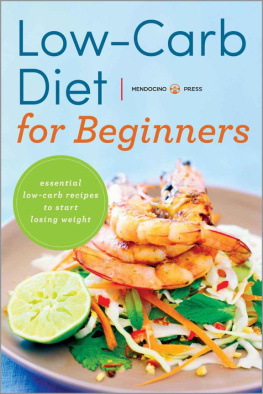
Copyright 2012 by Fredrik Pauln
English Translation 2014 by Skyhorse Publishing
First published in 2012 as LCHQ by Fredrik Pauln, Fitnessfrlaget, Stockholm, Sweden
Photography by Frida Wismar
Design by Anders Timrn
Photo editing by Joachim Cohen
Recipes by Karoliina Pauln, Fredrik Pauln
Food styling by Jacom Wismar
All Rights Reserved. No part of this book may be reproduced in any manner without the express written consent of the publisher, except in the case of brief excerpts in critical reviews or articles. All inquiries should be addressed to Skyhorse Publishing, 307 West 36th Street, 11th Floor, New York, NY 10018.
Skyhorse Publishing books may be purchased in bulk at special discounts for sales promotion, corporate gifts, fund-raising, or educational purposes. Special editions can also be created to specifications. For details, contact the Special Sales Department, Skyhorse Publishing, 307 West 36th Street, 11th Floor, New York, NY 10018 or .
Skyhorse and Skyhorse Publishing are registered trademarks of Skyhorse Publishing, Inc., a Delaware corporation.
www.skyhorsepublishing.com
10 9 8 7 6 5 4 3 2 1
Library of Congress Cataloging-in-Publication Data
Pauln, Fredrik, 1970
[LCHQ. English]
Low carb, high quality diet : food for a thinner, healthier life / Fredrik Paulun ; translated by Viktoria Lindback.
pages cm
Includes bibliographical references and index.
ISBN 978-1-62873-647-2 (alk. paper)
1. Low-carbohydrate diet. 2. Natural foods. 3. Reducing diets--Recipes. 4. Weight loss. I. Title.
RM237.73.P3818 2014
613.2'833--dc23
2013044292
Printed in China

CONTENTS



Introduction
When I more or less introduced the people of Sweden to the Glycemic Index in the late 1990s, one might say that the population was struck with carbohydrate fever. Or with fat phobia. This resulted in fat-free yogurts with more sugar than soda and other absurd products. Today we know better. Research and studies have advanced our knowledge. Its become evident that we should care not only about the Glycemic Indexfast- or slow-acting carbohydratesbut also about the number of carbohydrates in our food. The carbs we consume should, of course, be slow-acting, but most people would also benefit from reducing their intake of carbohydrates overall. That being said, its just as unwise to eliminate all carbohydrates as it is to drastically reduce your intake of fat. The body is at its healthiest with a little bit of each, and this is exactly what the Low Carb High Quality (LCHQ) diet offers.
LCHQ is my interpretation of what constitutes the best food and what is the appropriate number of carbohydrates and kinds of fat you should eat.
In the modern diet, there is one thing that predominates when it comes to causing disease and obesity: white sugar. The average American consumes way too much sugar, resulting in a surplus of energy and a nutrient deficiency. LCHQ helps eliminate sugar and prioritize nutritious food to strengthen rather than harm the body.
LCHQ is my interpretation of what constitutes the best food and what is the appropriate number of carbohydrates and kinds of fat you should eat. And, naturally, LCHQ is a lifestyle that promotes physical activity.

What Is LCHQ?

LCHQ is the abbreviation of Low Carb High Quality. It indicates a low-carb diet of high quality. High quality refers to both the quality of the food you eat, your experience of the food you eat, and how this affects your quality of life. Of course, food should provide you with energy, rather than drain energy from you. It should include enough nutrients to feed your muscles, brain, and immune system, as well as anything else thats fighting for the nutrients in your blood and cells. Ill describe the significance of that later in the book, but in general LCHQ is about reducing the number of carbohydrates in our diet without excluding them entirely.
Fat is a natural part of our diet, but its not meant to be consumed in extreme amounts and the quality of the fat we do take in is very important. Some nutritionists recommend that you eat large amounts of animal fat, as they claim it doesnt harm your heart. In my opinion, this is misleading; there are plenty of other disadvantages to eating too much animal fat. For example, recent studies suggest that consuming too much animal fat reduces life expectancy and that saturated fat may increase the risk of cardiovascular disease () . LCHQ was created to provide dieters with the right amount of fats that will burn fat, build muscle, reduce inflammations, and keep us healthy.
The protein intake in LCHQ is higher than what most people are used to, but it provides great health benefits, such as reduced blood pressure, increased muscle mass, and a better feeling of fullness or satisfaction after a meal.
This is not a diet that restricts caloric intake. Its a lifestyle that makes your body feel healthier and look betterwithout the anxiety that other diets often generate. LCHQ also includes exercise, because by simply moving your body and exercising your heart and other muscles, you can start feeling great. LCHQ is designed to be a lifestyle for the rest of your life.

Food should be enjoyed but not at the expense of your health.
Whats behind LCHQ?
I have worked with dietetics for almost twenty years and I have a masters degree in nutrition. In plain English, this means that Im a nutrition physiologist, and over the years I have met with and helped thousands of people. At Paulns Nutrition Center, my staff and I have seen many people who feel fantastic as a result of following the LCHQ diet. Their blood lipids have improved, as well as their sensitivity to insulin. In general, theyre able to sleep better and their mood is lighter now that they are making the choices that LCHQ promotes. Additionally, they tend to lose weight inadvertently, and the best part is that their body composition improves as a result of increased muscle mass. They are also left with the energy to exercise and they feel completely satisfied after each meal, which is incredibly important in order to maximize quality of life. No individual benefits from reducing his or her food intake over a long period of time, regardless of whether that means reducing portion size or simply omitting certain nutrients or foods that he or she actually enjoys.

